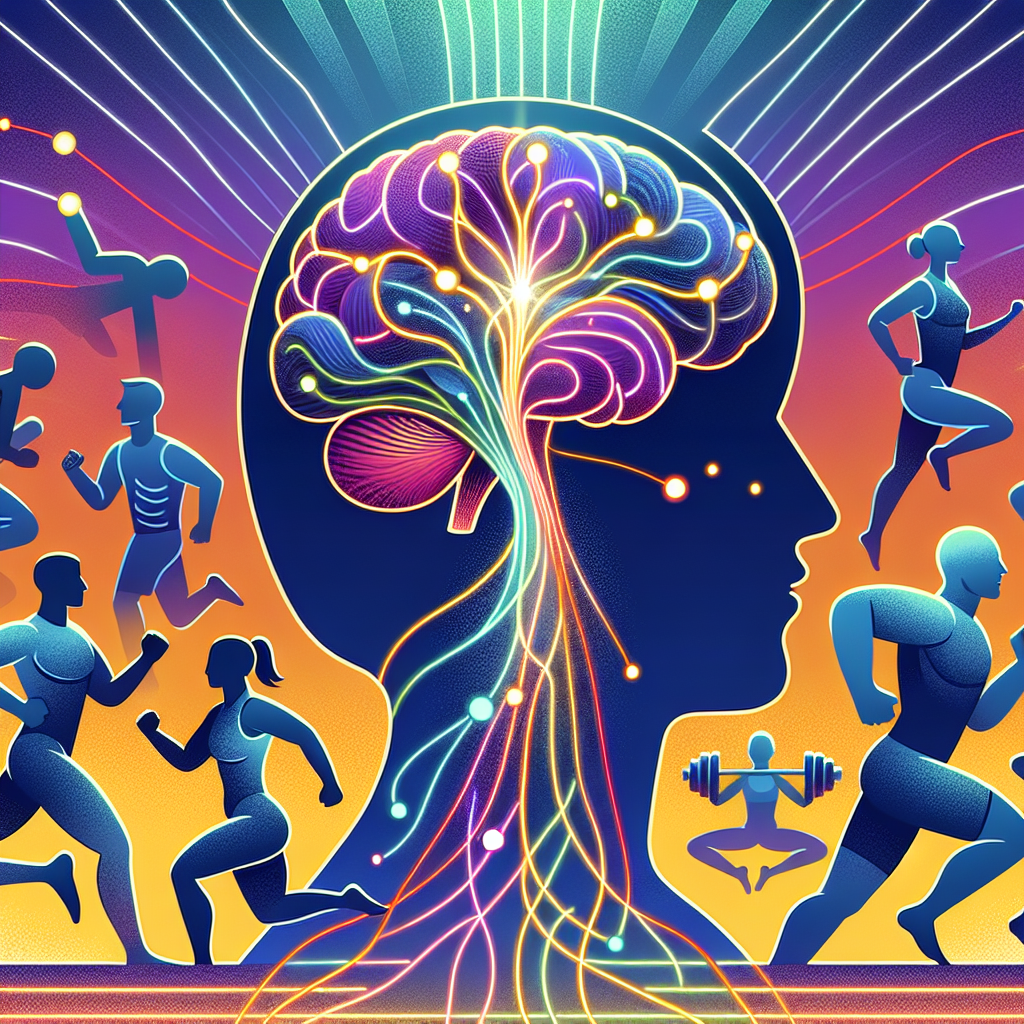
Introduction: The Brain-Body Connection
The intricate relationship between the brain and body is a powerful realm of study, revealing how physical health profoundly influences mental well-being. Exercise is a compelling conduit between these two systems, demonstrating that our physical activity isn’t just about building muscles or endurance; it’s a fundamental component of mental health. Engaging in regular exercise can significantly improve mood, reduce anxiety, and even enhance cognitive functions, affirming that the mind and body are deeply interconnected.
Benefits of Exercise on Mental Health
Reduces Stress and Anxiety
One of the most immediate benefits of regular exercise is its ability to decrease feelings of stress and anxiety. Physical activity stimulates the production of norepinephrine, a chemical that can moderate the brain’s stress response. Engaging in exercise, whether it’s a brisk walk or a high-intensity workout, can provide a distraction from daily worries and can lead to lower levels of tension and anxiety over time.
Boosts Cognitive Function
Exercise is not just beneficial for emotional well-being; it also plays a crucial role in enhancing cognitive function. Studies have shown that regular physical activity can help improve memory, attention, and overall brain performance. This cognitive boost is attributed to an increase in blood flow to the brain, as well as the promotion of neurogenesis—the process of creating new neurons—particularly in the hippocampus, which is vital for learning and memory.
Enhances Mood Through Endorphins
Physical activity triggers the release of endorphins, the body’s natural mood lifters. This chemical response can lead to what’s commonly referred to as the “runner’s high,” a feeling of euphoria that can last for hours after exercising. Regular engagement in exercise has been shown to provide not only immediate positive mood changes but also longer-term benefits, potentially reducing symptoms of depression and enhancing overall life satisfaction.
Types of Exercises for Mental Fitness
Aerobic Exercises
Aerobic exercises, such as running, swimming, cycling, and dancing, are particularly effective in improving mental health. These activities can boost cardiovascular health while simultaneously flooding the brain with invigorating chemicals that promote focus and clarity. They are often easier to maintain and can be incorporated into daily routines.
Mind-Body Practices (Yoga, Tai Chi)
Mind-body practices like yoga and tai chi transcend physical movement, incorporating mindfulness and meditation techniques that cultivate a deep sense of connection between the body and mind. These practices not only enhance flexibility and strength but also promote relaxation and reduce stress levels. They have been linked to improvements in mood, reduction in anxiety, and overall better mental resilience.
Scientific Evidence Supporting the Connection
Extensive research supports the positive correlation between physical activity and mental health. Studies indicate that individuals who engage in regular exercise report lower levels of depression and anxiety. For example, a meta-analysis published in the journal Psychological Bulletin found that physical activity is significantly correlated with reduced depressive symptoms across various age groups and settings. Moreover, longitudinal studies have demonstrated that individuals who maintain an active lifestyle are less likely to experience cognitive decline as they age.
Practical Tips to Incorporate Exercise into Daily Life
1. Set Realistic Goals: Start with achievable goals that fit your lifestyle. Aim for 15-30 minutes of moderate exercise most days of the week.
2. Find Activities You Enjoy: Whether it’s dancing, hiking, or swimming, engaging in enjoyable activities makes it easier to stay committed.
3. Create a Routine: Schedule regular workouts just like any other important appointment. Consistency helps build a habit.
4. Incorporate Movement into Daily Activities: Take stairs instead of elevators, walk or bike for short errands, or do bodyweight exercises during TV commercials.
5. Exercise with Others: Join a class or find a workout buddy to increase motivation and hold each other accountable.
6. Mindfulness and Meditation: Consider incorporating mindful movement practices like yoga or tai chi, which can enhance the benefits of physical activity.
7. Listen to Your Body: Pay attention to how your body feels during and after exercise. Aim to find a balance that keeps you engaged without risking injury or burnout.
In conclusion, recognizing the transformative impact of exercise on mental health is essential. By understanding the brain-body connection and incorporating physical activity into everyday life, individuals can enhance their emotional well-being, reduce anxiety and stress, and foster a healthier, more fulfilling life.


